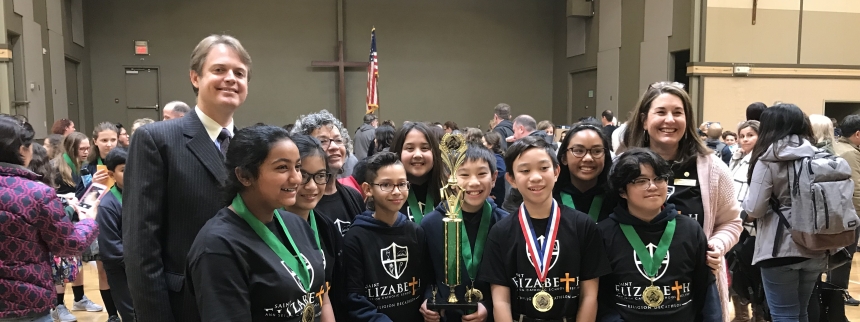
At last year’s National Catholic Educational Association’s Catholic Leadership Summit in Phoenix, AZ, the Foundations and Donors Interested in Catholic Activities (FADICA, https://www.fadica.org/about) presented the results of a national survey conducted of parents’ perception of Catholic education.
The presenter’s top finding was this: We have an opportunity to differentiate Catholic education with character-based instruction. As a Catholic school graduate myself, I know this to be true. As a student, I was blessed with teachers of exceptional character who gave of themselves fully and generously, dedicating their lives to loving others into being. Beyond facts, grades and worldly achievement, there is a sense of becoming in our schools: becoming women and men of character, becoming servant-leaders in Christ.
“Disciple of Christ -- Education in Virtue” is that opportunity to differentiate our schools. We were blessed to have a pilot school, Presentation of the Blessed Virgin Mary in Sacramento, and blessed to have the Dominican Sisters of Mary, Mother of the Eucharist, willing to share their knowledge and experience with us.
When I went to Presentation School to observe for a day last fall, I saw that adopting the language of virtue had changed the culture of the school in many positive ways. The students were managing conflict and problem-solving better. Parent-teacher conferences were focused and constructive. Teachers were constructive and positive in their collaboration and around goal setting for students. And, to a person, each teacher said that every school should be on the curriculum.
Why does Education in Virtue work? On a practical level, it gives a community a positive common vocabulary for describing human behavior. For example, when a student learns to take into account the effects of his/her decisions on others, and then learns to call that habit “circumspection,” he/she grows in the ability to control and direct those actions.
Education in Virtue is not, however, just about words. To quote Dominican Sister Maria Silva, “If you want to teach virtue, you have to live virtuously.” Both modern educational research and the wisdom of the ancients teach us the same thing: the credibility of the teacher in front of them is essential to student buy-in, and therefore the anchor to learning. God has given us faith, hope and love freely, but it is up to us to cultivate prudence, justice, temperance and fortitude.
This is both our opportunity and our vulnerability as educators and Christians. I am convinced that as we grow in our habits oriented toward doing good in our virtue, and bring that growth into the classroom and community, students will recognize that and want to share in it. As much as we are here to love them into being, they love us into being; we are here to save them, and yet they end up saving us. Students and adults alike, we cultivate moral excellence and academic excellence; we form servant-leaders in Christ.
Lincoln Snyder is executive director of schools for the Diocese of Sacramento.
In photo above, Lincoln Snyder congratulates students of St. Elizabeth Ann Seton School in Elk Grove for placing first in the religion competition in 2018.

